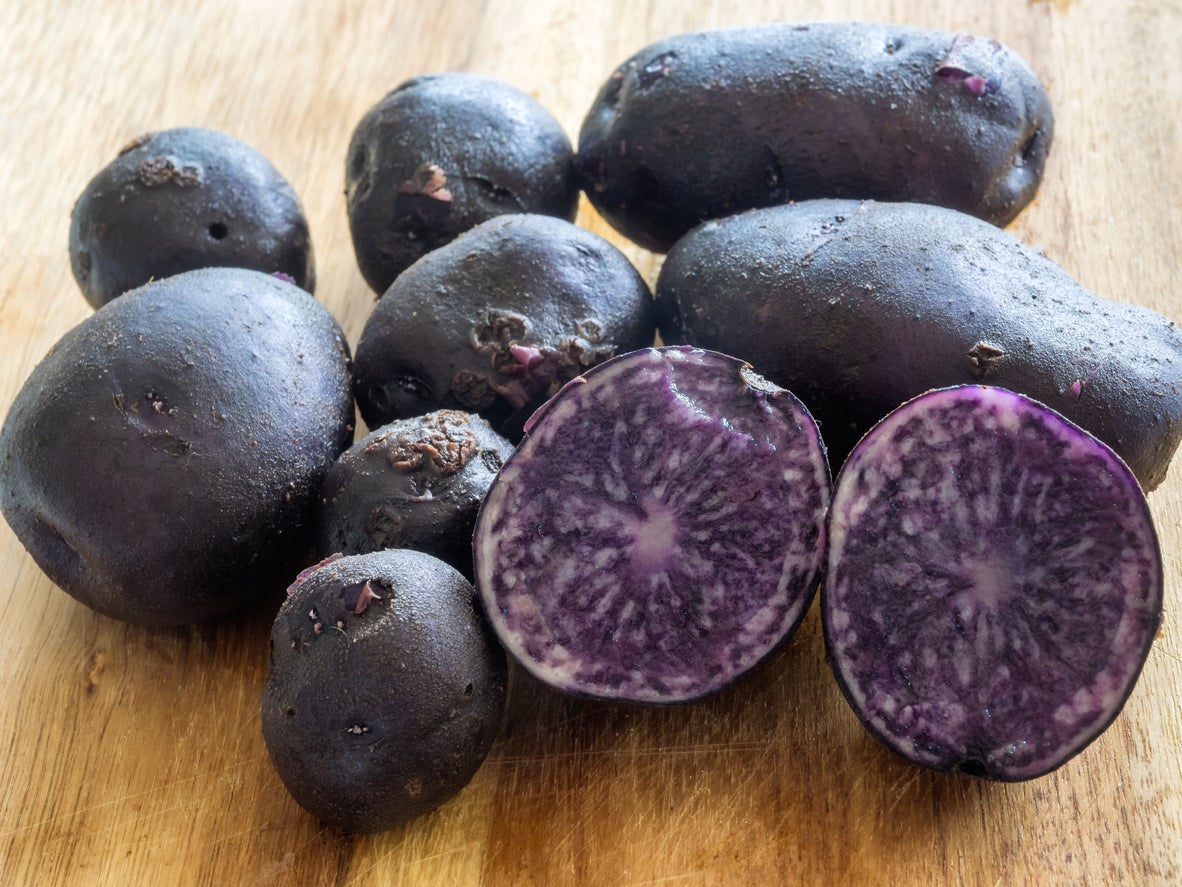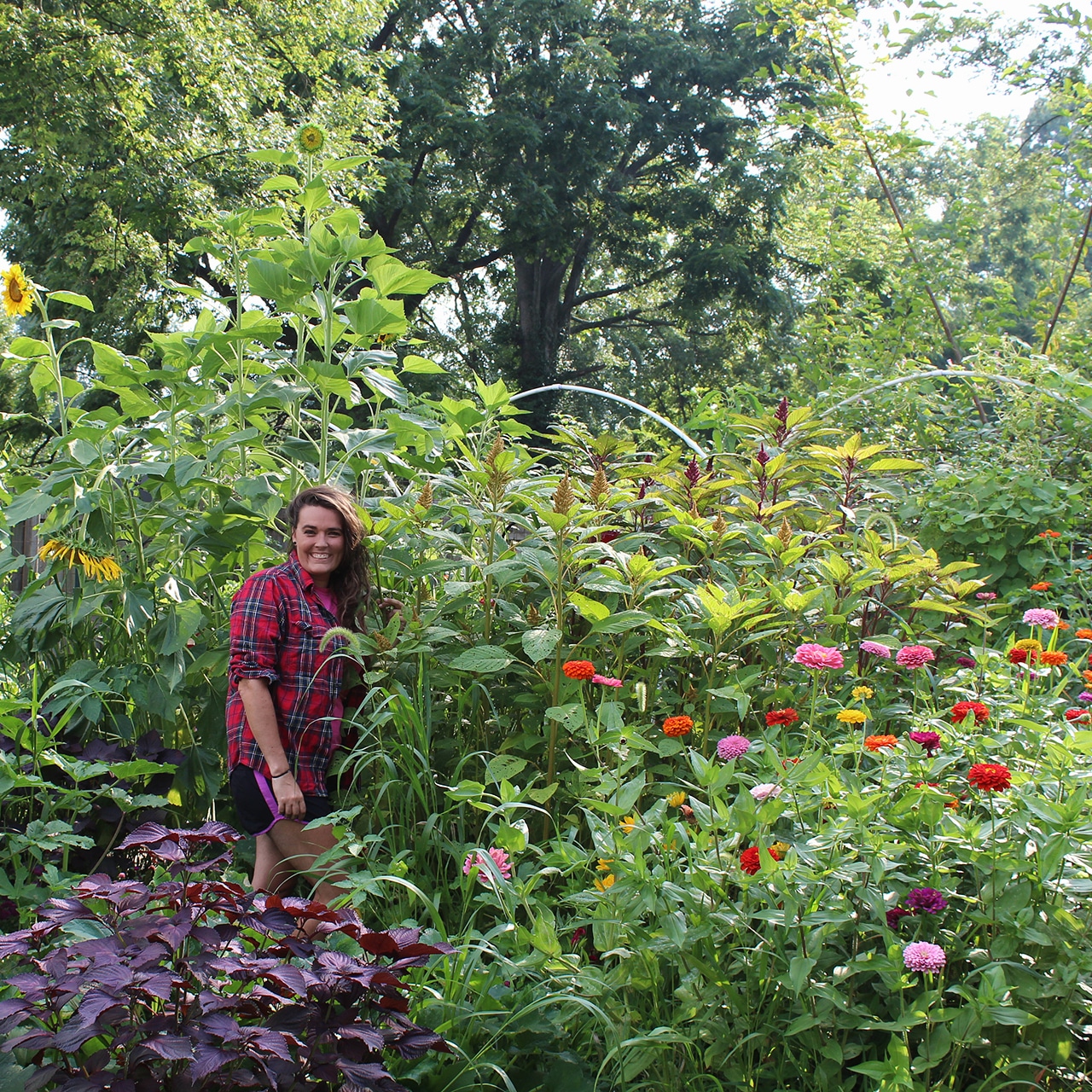Growing Purple Potatoes: Blue And Purple Potato Varieties


Sign up for the Gardening Know How newsletter today and receive a free copy of our e-book "How to Grow Delicious Tomatoes".
You are now subscribed
Your newsletter sign-up was successful
For many home gardeners, the allure of growing unique varieties of fruits and vegetables is undeniable. Heirloom and hybrid plants offer growers a myriad of options when planning the garden each season. The addition of these crops is an exciting way to not only introduce new foods in the kitchen, but also reap the numerous health benefits of homegrown food. One such crop, purple potatoes, will brighten your plate as well as diversify your home garden.
What are Purple Potatoes?
Purple potatoes, sometimes referred to as blue potatoes, are a type of potato which are native to South America. While very similar to their white grocery store counterparts, these potatoes exhibit a beautiful purple colored skin and flesh. Heirloom and hybrid purple potato varieties range from solid purple to a mixture of purple and white. Though quite the interesting addition to the garden, perceived nutritional blue potato benefits are numerous. Regardless of the cultivar, purple and blue potato varieties contain the valuable antioxidant called anthocyanin. Anthocyanin, of course, being responsible for the plants’ vibrant purple color.
Growing Purple Potatoes
Luckily for growers, the process of growing purple potatoes is very similar to that of growing any other variety. First, growers should select a growing location and begin to prepare the soil. Planting sites should be well draining and slightly acidic. A well amended vegetable bed will ensure available nutrients as the plants grow throughout the season. Since potato plants do not grow true to seed, the most reliable method in which to grow potatoes is by planting tubers. Tubers will produce plants which are identical to the potato planted. In recent years, purple potato varieties have gained popularity. This means that it may be possible to find these tubers at local garden centers. However, if locating tubers is difficult, many online retailers offer these types of potatoes. When buying seed potatoes, always make certain to buy only from reputable sources to ensure disease free tubers. Gardeners implement many methods when growing potatoes. Due to their compact nature, many choose to grow potatoes in containers or fabric grow bags. Simply plant tubers in an equal mix of compost and potting soil. Other methods for planting potatoes include planting directly into furrows or the use of the Ruth Stout method. Regardless of the planting method, potato plants require frequent “hilling,” or mounding of dirt around the stems, as the season progresses. This can be accomplished with the use of soil or a straw mulch. This will assure that forming potatoes underground do not become green due to sun exposure. Aside from occasional hilling, the process of growing potatoes is generally carefree. Often, the combination of mulching and dense top growth will prevent weeds from invading the potato garden bed. With frequent and consistent watering, even novice gardeners can grow bountiful harvests of purple potatoes.
Blue/Purple Potato Varieties
Here are some popular varieties of blue or purple potato plants for the garden:
- ‘Adirondack Blue’
- ‘All Blue’
- ‘Magic Molly’
- ‘Purple Majesty’
Sign up for the Gardening Know How newsletter today and receive a free copy of our e-book "How to Grow Delicious Tomatoes".

Tonya Barnett has been gardening for 13 years. Flowers are her passion. She has transformed her backyard into a cut flower garden, which she regularly chronicles on her YouTube channel http://www.youtube.com/@tonyawiththeflowers.